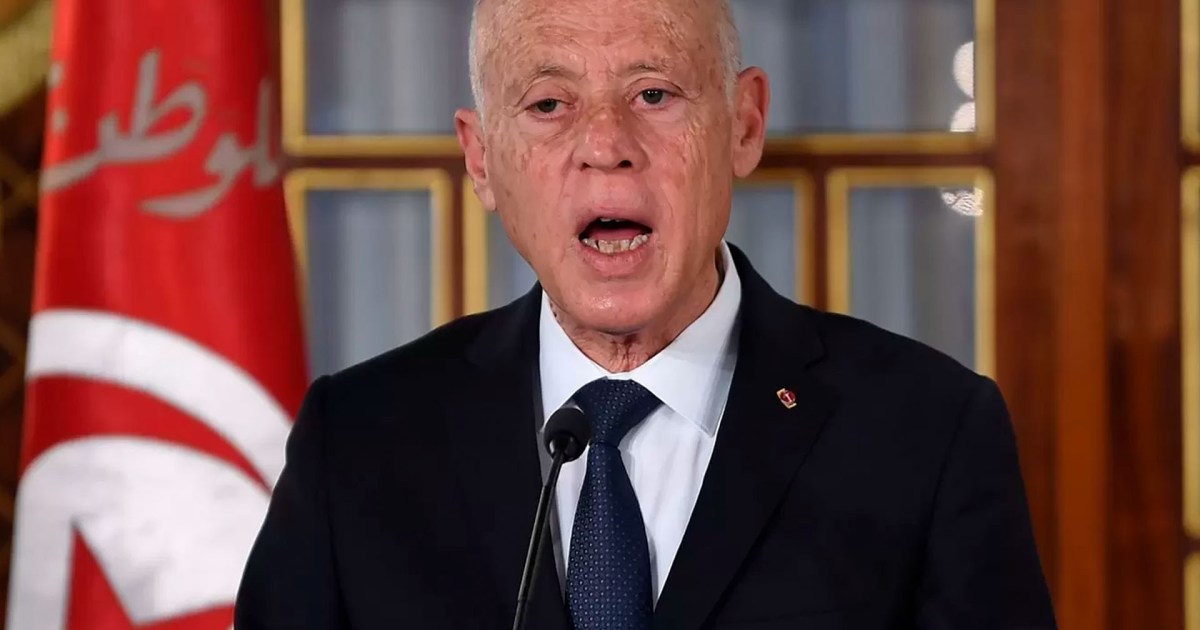The British Financial Times published a report stating that despite the popularity of Tunisian President Kais Saied now, experts believe that his honeymoon will most likely end soon, given the difficulty of providing urgent solutions to the economic crisis as Tunisians want.
The newspaper's report, prepared by its correspondent in Tunisia, Heba Saleh, quoted Tunisian political analyst Tarek Al-Kahlawi as saying that the best scenario - for the woes of the crisis that Tunisia is witnessing now - is that President Said will be convinced of the need to open up to the political elites and the Tunisian General Labor Union, driven by the pressures of economic and social problems for fear. The situation turned into complete chaos."
Al-Kahlawi believes that this may lead to the formation of a new political system in which the presidency may have the upper hand, but with limitations and oversight.
However, Kahlawi and other analysts point out that the situation in Tunisia may deteriorate for the worse if popular anger over bad economic conditions leads to a revolution sweeping the country's streets.
tough choices
The Financial Times report cited a comment by Tunisian political analyst Youssef Sharif, head of the Columbia Global Centers in Tunisia, who believes that Said will find himself in front of two options in the event of popular anger due to the difficult economic conditions, namely "repression or negotiation."
He also believes that the worst-case scenario for President Saeed may happen if his popularity declines, which may precipitate a coup against him by the army or security.
Sharif says that Qais Saeed's biggest mistake was that he opened the trouble box without taking into account all the risks involved, and that the danger of the matter lies in that his failure will lead to the emergence of the worst political system the country has known.
The newspaper's report indicates that many Tunisian parliamentarians and politicians found themselves under house arrest and were prevented from traveling one week after the "coup" of Kais Saied.
Although most of these measures were later rescinded, according to the Financial Times, some lawmakers who opposed the president, who had enjoyed parliamentary immunity before parliament was abolished and stripped of it, found themselves re-opened in corruption cases.
'The revolution is not over yet'
The Financial Times report touched on the violation of freedoms and restrictions on the media, and said that the Tunisian authorities closed two television channels belonging to two major parties in the country under the pretext of operating without a license.
Last week, the Tunisian authorities issued an international arrest warrant for former President Moncef Marzouki - a prominent opponent of the dictatorship and the first transitional president of Tunisia after the 2011 revolution - who had called on France to stop its support for President Kais Saied.
Marzouki described the warrant issued against him as "a threatening message to all Tunisians."
The Financial Times report cited a comment by Rachid Ghannouchi, the leader of the Ennahda party that won the largest number of seats in parliament, in which he believed that Tunisia was in the midst of a "difficult" democratic transition and that his party would resist dictatorship.
Ghannouchi said that Ennahda wants a dialogue about reforms, and that Tunisia is now experiencing a counter-revolution, and "I am convinced that the revolution has not ended and the current populist mood will be defeated."
protests
It is noteworthy that, on Sunday, Tunisia witnessed popular protests against the exceptional measures of Kais Saied, as thousands of demonstrators headed to the Parliament headquarters, whose work was suspended, waving the start of a sit-in in its surroundings, amid a heavy security presence.
And Tunisian politician Jawhar bin Mubarak - a member of the "Citizens Against the Coup" campaign - announced the start of an open sit-in in the vicinity of Parliament.
And Bardo Square in the vicinity of the parliament, which has been closed since the date of the exceptional measures - which Saeed announced on July 25, last year - witnessed a stampede between the security forces and demonstrators wishing to advance to the vicinity of the parliament.
The protesters said that Tunisia has become internationally isolated after this date.
They also demanded an end to what they described as a state of exception and ambiguity and a return to the path of constitutional legitimacy.

